A new book has gathered the memories of ‘Kriegskinder’, next to portraits of them as they are now. Photographer Frederike Helwig reveals how they remember childhoods in Nazi Germany. In her foreword, Senfft acknowledges how collective silence can infect wider groups. «Research … has shown that trauma and severe stress can be hereditary; that which is not dealt with can be passed on to the next generation.» And it leaches out beyond the family. «What is not brought to light and engaged with individually and within the family finds its way into society and politics.»
>> www.bbc.com/culture/story/20180123-how-the-children-of-nazi-germany-remember-world-war-two
Category Archives: Media
Suppressed memories of war in Frederike Helwig’s Kriegskinder
»Everyone portrayed [in Kriegskinder] had the courage to face the camera and tell his
or her story, to literally show him- or herself as Kriegskind,« writes Senfft.
»Their narratives are predominantly anecdotal, with different levels of reflection.
Traumas or transgenerational effects are rarely talked about, mirroring the silence
that is common til today. The readers and viewers are therefore asked to read between
the lines, to look the protagonists in the eye.«
British Journal of Photography 12/2017
>> more
Alexandra Senfft, l’héritage du silence du Troisième Reich
La Croix, France
Près de 70 ans après sa condamnation à mort et son exécution comme criminel de guerre, la mémoire de Hanns Ludin, ambassadeur du Troisième Reich en Slovaquie, continue à peser sur ses descendants. Alexandra Senfft, sa petite-fille, a brisé le déni familial.
La Croix, François d’Alançon, 14/08/2017
>> more

Cemetery Spötting Landsberg am Lech © Maurice Weiss/Agentur Ostkreuz
Alexandra Senfft, l’héritage du silence
Près de soixante-dix ans après sa condamnation à mort et son exécution comme criminel de guerre, la mémoire de Hanns Ludin, ambassadeur du Troisième Reich en Slovaquie, continue à peser sur ses descendants. Alexandra Senfft, sa petite-fille, a brisé le déni familial.
La Croix, François d’Alançon, 14/08/2017
>> more
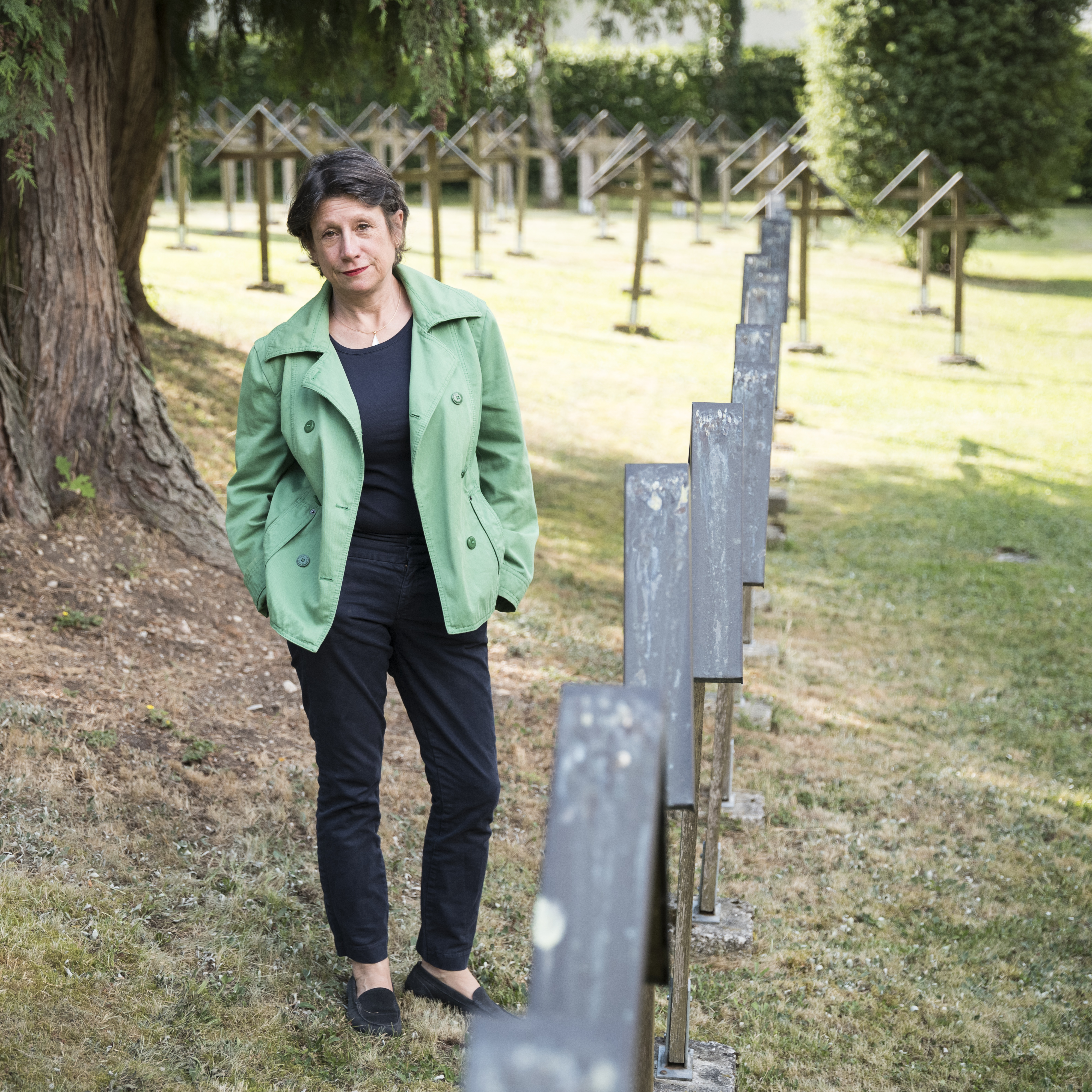
21.Juin 2017, Allemagne, Landsberg am Lech, Baviere, Alexandra Senfft, auteur , photographier sur la cimetire de Spttingen, avec des tombes de la deuxime guerre mondiale Cemetery Spötting Landsberg am Lech © Maurice Weiss/Agentur Ostkreuz
Breaking the family legacy of silence over the Third Reich
Nearly 70 years after being executed as a war criminal, the memory of Third Reich ambassador to Slovakia, Hanns Ludin, continues to weigh on his descendants. His granddaughter Alexandra Senfft has broken the family silence.
La Croix, François d’Alançon, 14/08/2017
>> more
Mein Kampf Returns to Germany
Alexandra Senfft, an author and Middle East expert, became acutely aware of her own family history only later in life. «By all means look at Mein Kampf and contextualize it,» says Senfft. «It is part of our history. What I am kind of hesitant about is identifying Hitler as Nazism as such. I find it much more important to not only focus on leaders but on how people on an every day level, ordinary people, latch on to the ideology.» One must ask, she says, why «the majority of ordinary Germans became perpetrators.»
The Daily Beast 01/09/2016
>> more
Reichental named this year’s International Person of the Year
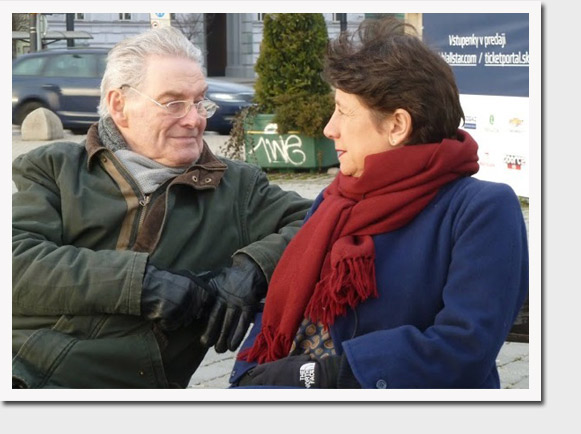 Holocaust survivor Tomi Reichental has been named this year’s International Person of the Year at an awards ceremony in Dublin.
Holocaust survivor Tomi Reichental has been named this year’s International Person of the Year at an awards ceremony in Dublin.
>> Video
I wanted reconciliation
«Embracing Alexandra Senfft, the granddaughter of the Nazi war criminal Hans Ludin who was implicated in sending 35 members of my family to death in the gas chambers, was not an act of forgiveness. Instead it was an embrace of a ‘kindred spirit’. Alexandra sought me out in order to demonstrate our common humanity. She wants to proclaim the truth and urge people not to forget.»
The Guardian 05/02/2015
>> more
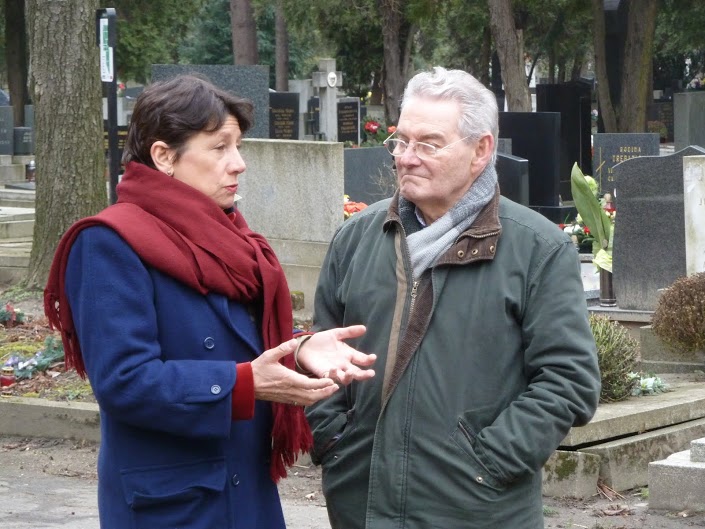
A Rabbi’s Word, Kehila Newsletter
By Frank Dabba Smith, London
For German writer Alexandra Senfft, who spoke to Mosaic members and guests on the anniversary of Kristallnacht, 10th November 2014, there can be no such thing as a family secret.
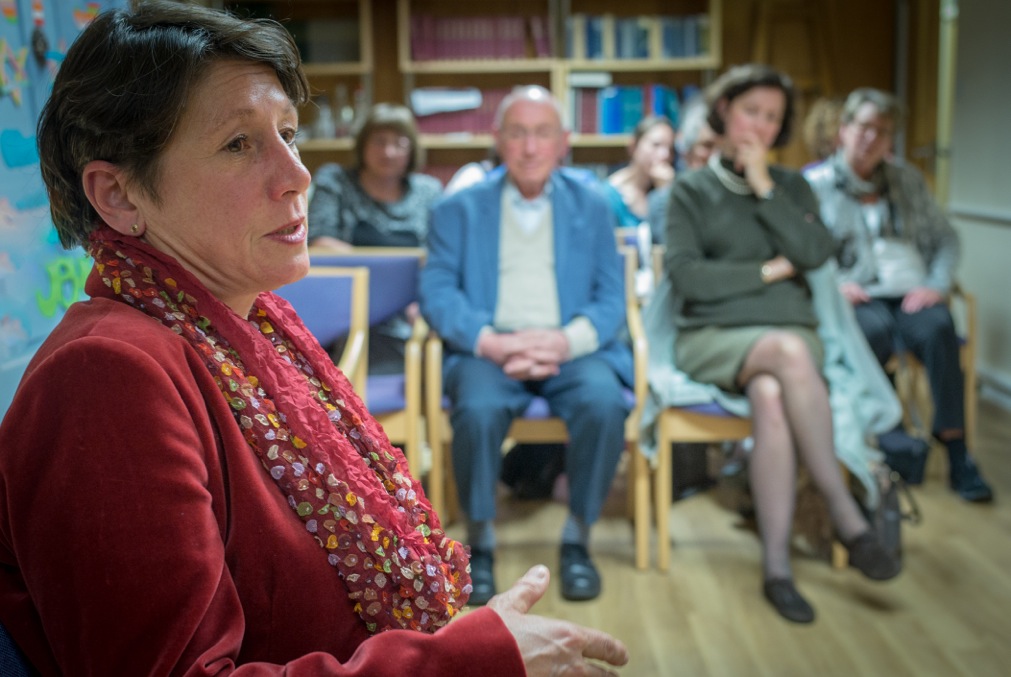
Alexandra’s maternal grandfather was Hanns Elard Ludin who was born in 1905 in Freiburg, Germany and hanged for war crimes in 1947 in Bratislava, Slovakia. Ludin joined the Nazi party and the SA-storm troopers in 1931. Reputedly lucky to survive Hitler’s murderous purge against the SA in 1934, Ludin eventually became the German envoy to Slovakia. He may have been a diplomat by title but he was judged guilty of being directly involved in the deportation of some 70,000 Jews.
Alexandra’s family maintained the fiction that her grandfather was merely a decent civil servant despite his active membership in the NSDAP. This complicit silence was too much for Alexandra’s emotionally deprived mother Erika (1933-1998) who learned of her father’s execution while at boarding school at the vulnerable age of fourteen. Like other children of perpetrators, Erika died too young after decades of depression and alcoholism.
In her very respected book published in 2007, Schweigen tut weh: Eine deutsche Familiengeschichte (The Pain of Silence: A German Family History), Alexandra conveys her personal journey to discover the truth of her grandfather’s crimes and the subsequent silence that also destroyed her mother. Along the way, she lost relationships with both relations and friends. But she gained new and supportive friendships such as with the visionary Israeli psychology professor and filmmaker Dan Bar-on (1938-2008) who brought together descendants of Shoah victims and perpetrators. His passion was to overcome walls of silence and hostility.
Like Dan Bar-On, Alexandra is deeply involved with dialogue and conciliation. She is very aware of Rabbi Albert Friedlander’s words, ‘It’s not for me to forgive and I cannot forget; but we must live together anyway’. Her efforts also include peacemaking between Israelis and Palestinians and acknowledging the stories of the two traumatized sides of this conflict. In this regard, Professor Bar-On was an inspiration, too.
Those who attended Alexandra’s evening held in the packed HWPS sanctuary on Bessborough Road were deeply moved by her courage and vision. At the end of the evening, when I asked for members of the audience to join Alexandra in a photograph, the very first to volunteer was Hana Schlesinger, a child of Slovakian Jews who lost many relations in the Shoah. This was a precious moment of healing.
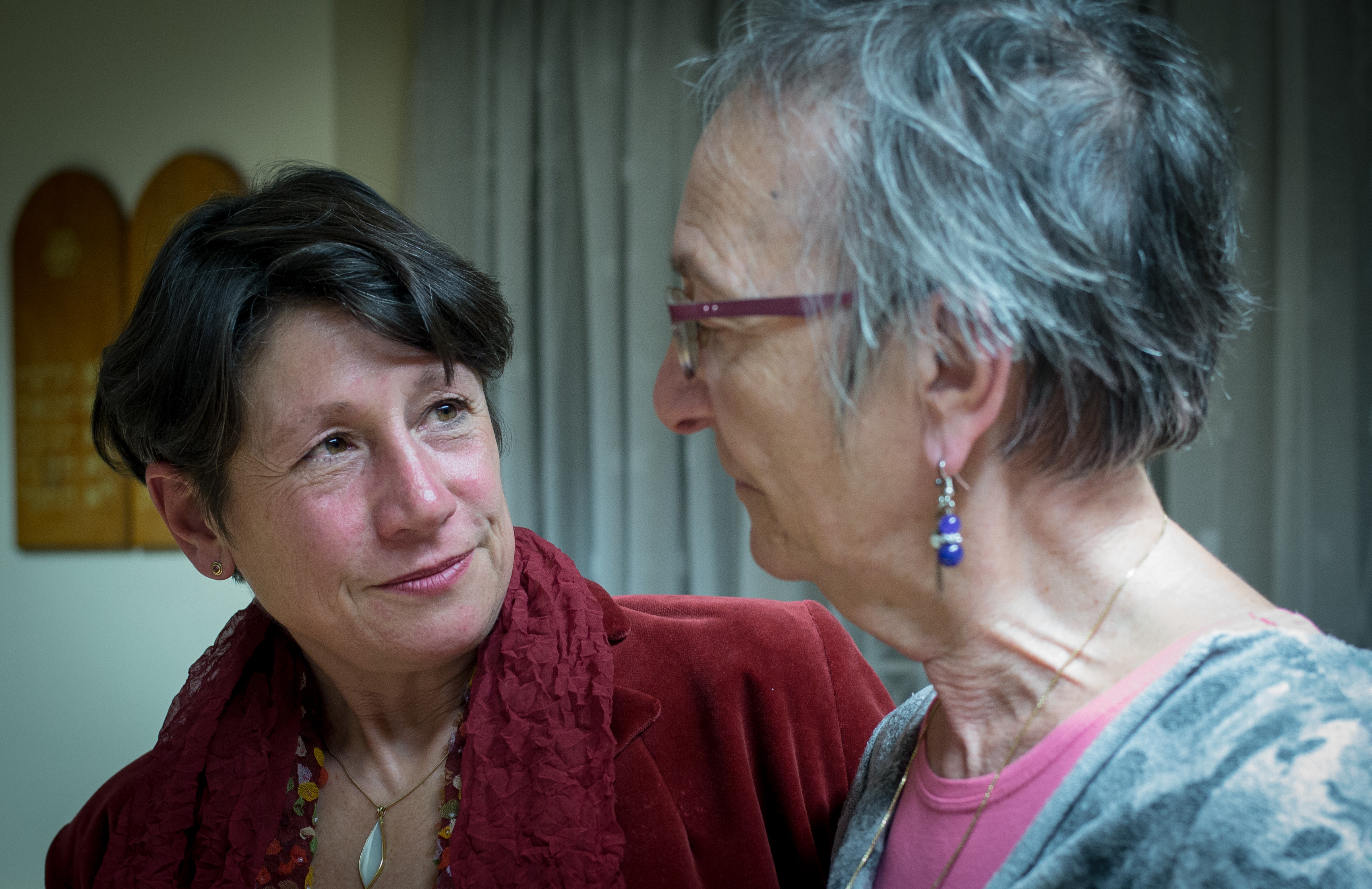
Alexandra Senfft with Holocaust survivor Tomi Reichental on Ireland’s RTE news
People of the Year Award
Alexandra Senfft accompanying Tomi Reichental to RTE (Ireland’s National Television)
«People of the Year Award», Dublin 6th December 2014, and commenting on his award
Tomi Reichental, one of only two holocaust survivors living in Ireland, has dedicated his time to speaking
about his experience in schools. He is presented with the International Person of the Year.
>>watch
